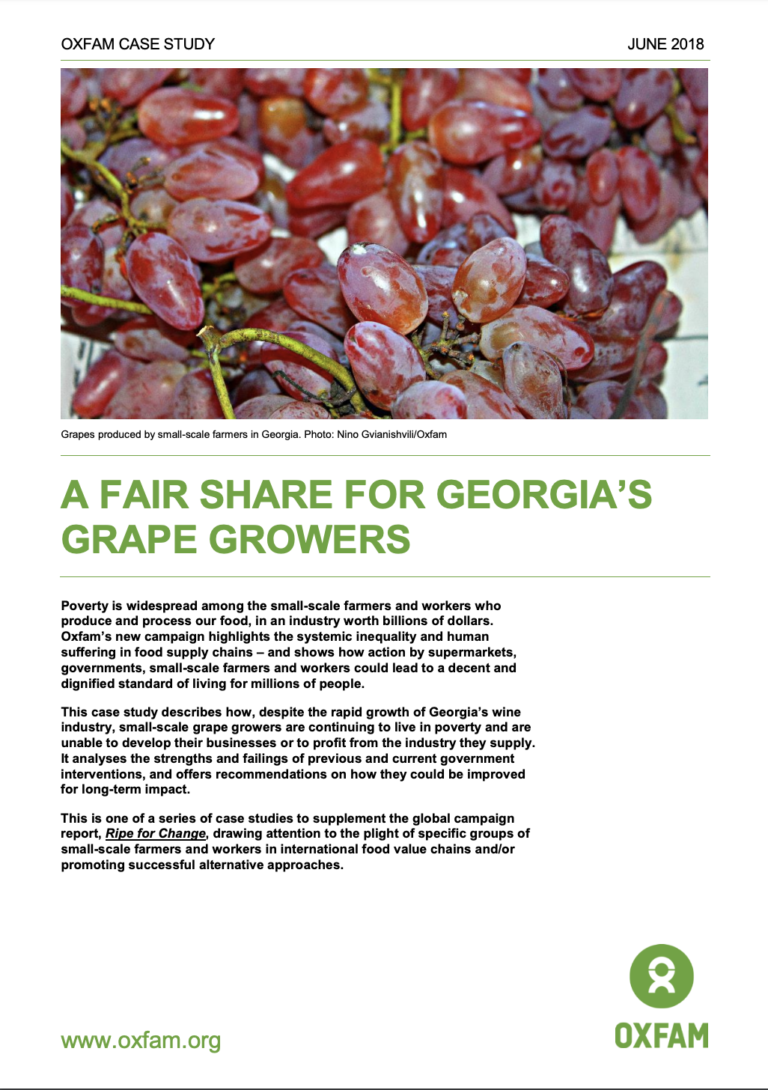This is one of a series of case studies to supplement the global campaign report, Ripe for Change, drawing attention to the plight of specific groups of small-scale farmers and workers in international food value chains and/or promoting successful alternative approaches.
Poverty is widespread among the small-scale farmers and workers who produce and process our food, in an industry worth billions of dollars. Oxfam’s new campaign highlights the systemic inequality and human suffering in food supply chains – and shows how action by supermarkets, governments, small-scale farmers and workers could lead to a decent and dignified standard of living for millions of people.
This case study describes how, despite the rapid growth of Georgia’s wine industry, small-scale grape growers are continuing to live in poverty and are unable to develop their businesses or to profit from the industry they supply. It analyses the strengths and failings of previous and current government interventions, and offers recommendations on how they could be improved for long-term impact.

